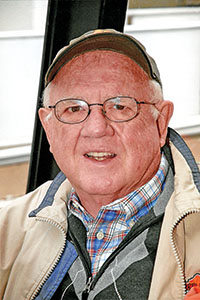In the 24-page American Profile national supplement that was packaged with one of our daily newspapers last week, the cover story highlighted five unconventional academic and vocational programs.
While millions of college students take courses each year to prepare for careers in business, computer science, education or health care, others use their educational dollars to study less common subjects.
Four of the educational programs that the article dealt with were studies in:
1. Adventure sports management at Garrett College in McHenry, Md.
2. Learning to play the bagpipes at Carnegie Mellon University in Pittsburgh, Pa.
3. Citrus grove management at Florida Southern College in Lakeland, Fla.
4.Working with puppets at the University of Connecticut in Storrs, Conn.
While the fifth college program highlighted in the article may seem uncommon to the general public, it won’t seem so unusual to the nation’s horseshoers: Farrier Science.
The article highlighted the farrier science program at Mesalands Community College, in Tucumcari, N.M. For students seeking a stable career, author Marti Attoun pointed out why horseshoeing is hard to beat.
“There’s always a demand for farriers because a machine can’t replace us,” says Mesalands instructor Eddy Mardis. “There’s a huge equine industry with rodeos, show horses, dressage and even the Olympics.”
About 20 students are enrolled in the farrier science program at Mesalands, one of about 50 North American colleges and private schools that offer 2-year associate degrees or certificates in becoming a horseshoer. Two days a week, Mardis says local residents bring their horses to the Mesalands campus for shoeing. Besides classroom training on a number of topics, forge work and actual experience trimming and shoeing in the farrier shop, students also get hands-on training at nearby ranches.
“Farriers need to know lameness issues, terminology and computer equipment. They often work closely with veterinarians,” Mardis concludes.







